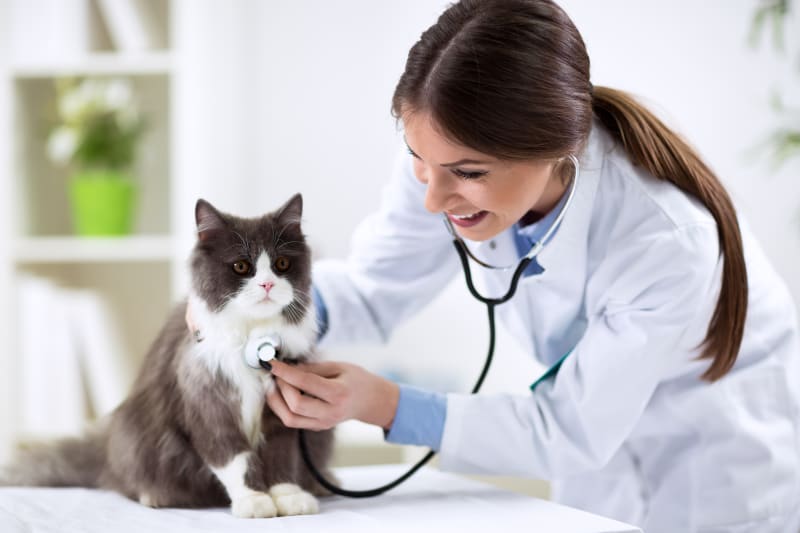In 24 cities

Early Care = Safer Care! Keep Your Cat Healthy with Vet Consults
|
|
Time to read 2 min
Enter pincode
Please enter a valid pincode Enter the pincode to check delivery date
Enter the pincode to check delivery date
100% Authentic

Easy return policy

Help us ensure a smooth delivery
SIZE GUIDE
Written by: Dr.Jyothi Madhu
|
|
Time to read 2 min
Cats are often masters at hiding discomfort, which makes regular vet visits crucial. Routine consultations allow early detection of health issues such as dental problems, urinary tract infections, parasites, or skin conditions. Detecting these issues early ensures faster treatment, less stress for your cat, and lower veterinary costs.
Early care goes beyond illness—it supports overall well-being. Healthy cats have better energy, appetite, and immune function, allowing them to enjoy a longer, more comfortable life.
During each vet visit, our experts perform a comprehensive examination, including:
Weight and body condition assessment
Coat and skin checks for parasites, dryness, or infections
Oral and dental health evaluation
Ear and eye inspection
Vaccinations, deworming, and flea/tick prevention
These routine checks help catch potential problems before they become serious, keeping your cat healthy year-round.
Every cat has unique needs based on age, breed, and lifestyle. Early consultations allow vets to provide personalized guidance on:
Diet and nutrition for optimal health
Exercise routines suitable for indoor or outdoor cats
Grooming tips for a shiny coat and reduced hairballs
Supplements or treatments for joints, skin, or digestive health
Custom advice ensures your cat receives the right care for their specific needs.
Regular vet visits give cat parents confidence that their pet is receiving professional care. Knowing your cat is monitored by experts reduces anxiety and strengthens the bond between you and your feline companion. Early detection also minimizes the likelihood of emergency situations, keeping both you and your cat stress-free.
Observing your cat at home helps spot early warning signs:
Changes in appetite or water intake
Altered activity levels or hiding behavior
Frequent scratching, hair loss, or grooming changes
Unusual litter box habits or signs of discomfort
Combining careful at-home observation with regular vet visits ensures your cat’s health is monitored proactively.
1. How often should my cat visit the vet?
Kittens require frequent visits (every 3–4 weeks initially). Adult cats benefit from at least one wellness check per year, while senior cats may need biannual visits.
2. What happens during a preventive vet visit for cats?
Vets perform a full physical exam, assess weight and coat, check teeth, ears, and eyes, and provide vaccinations, parasite prevention, and routine screenings.
3. Can preventive care detect serious illnesses early?
Yes. Regular check-ups help identify conditions like kidney disease, diabetes, or dental problems before symptoms become severe.
4. Should indoor cats also have preventive check-ups?
Absolutely. Indoor cats can still develop health issues such as dental disease, obesity, or parasites that are not always visible to owners.
5. What should I monitor at home between vet visits?
Observe appetite, drinking habits, energy levels, grooming, and litter box behavior. Report any changes promptly to your vet.
6. How do I choose the right clinic for preventive care?
Look for clinics with experienced veterinarians, a calm environment, personalized care plans, and positive reviews from pet parents.



In 24 cities

Happy pet parents

For every new member

Exclusive
2 item in cart
₹10,360


